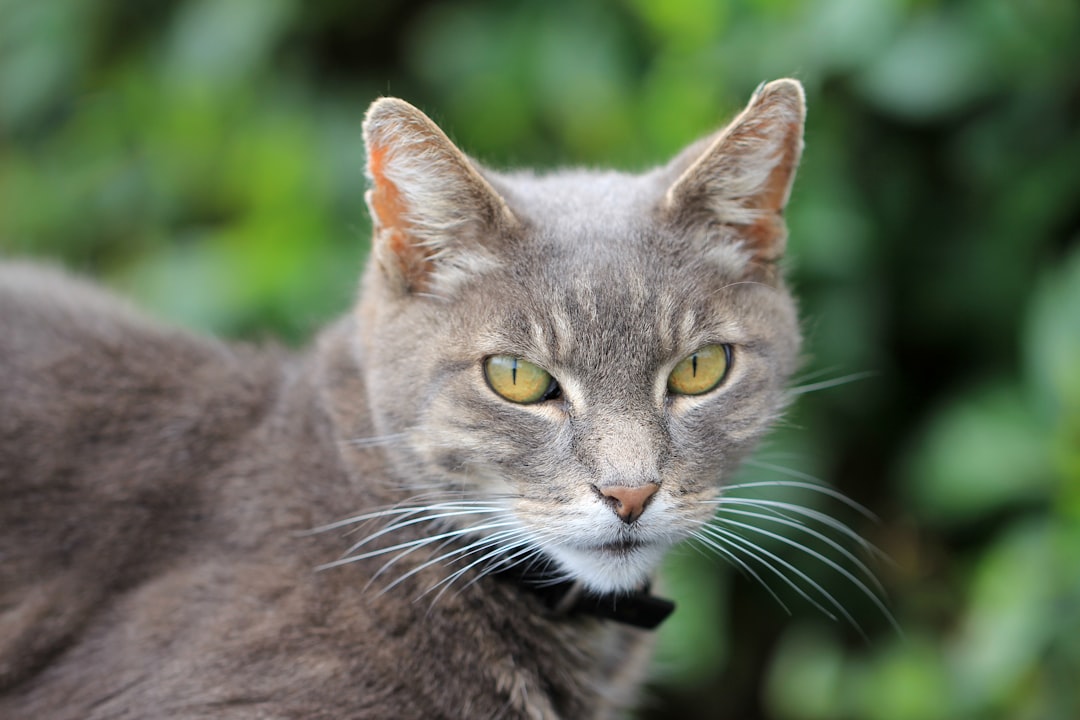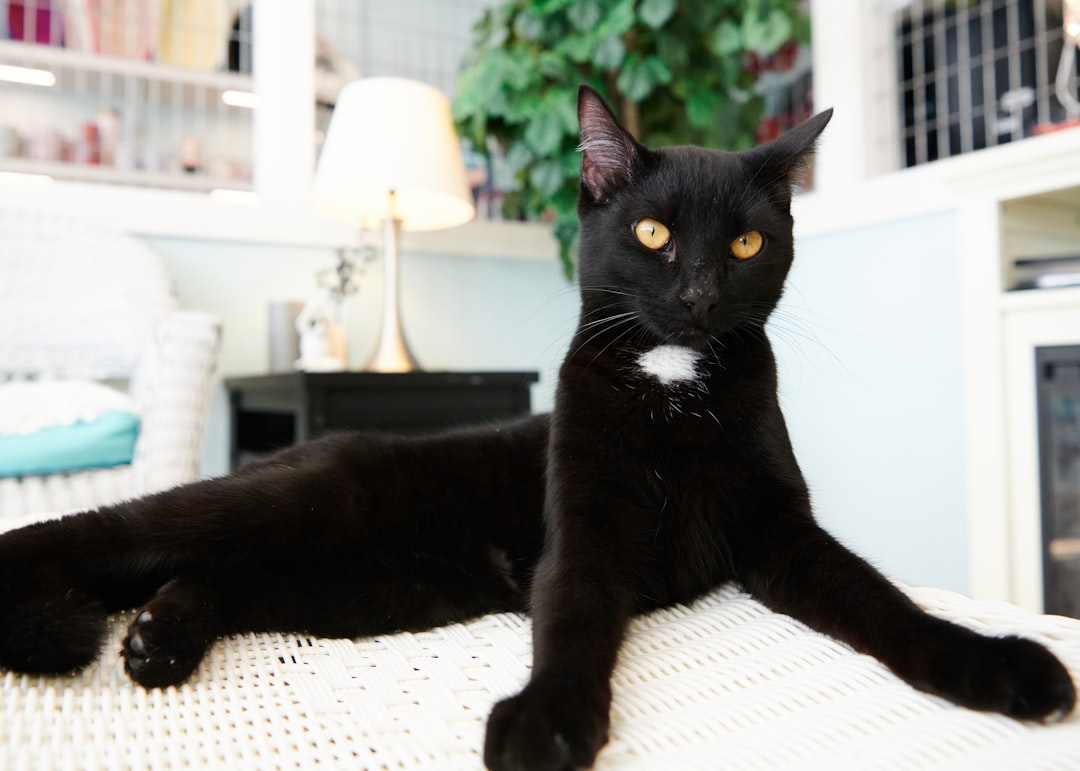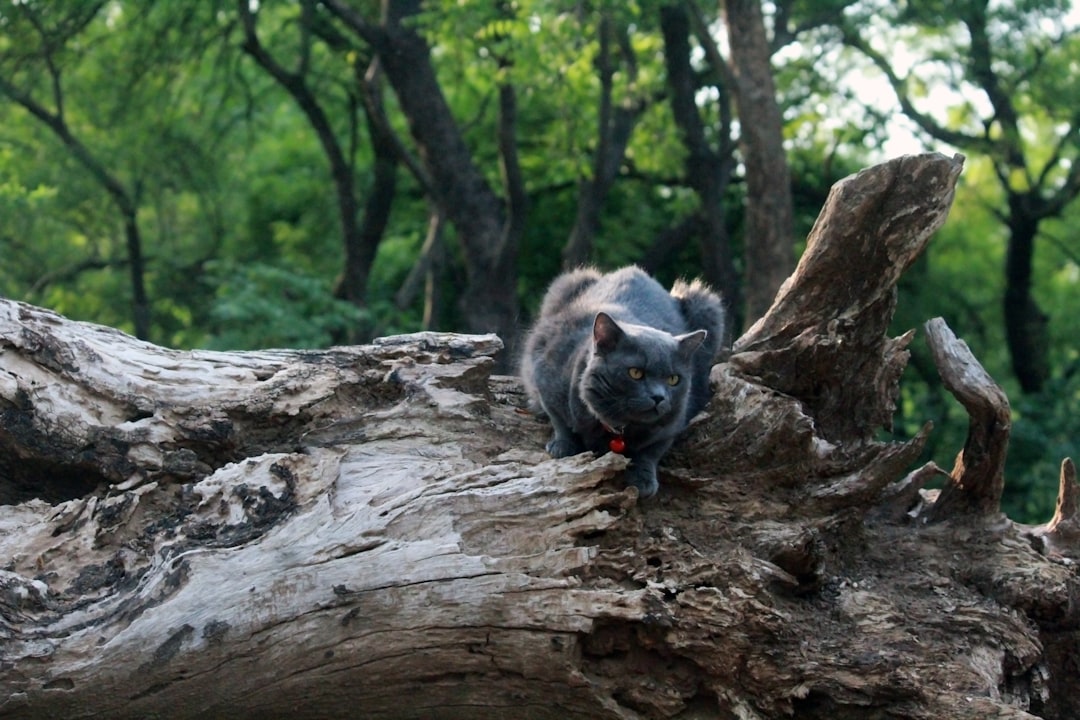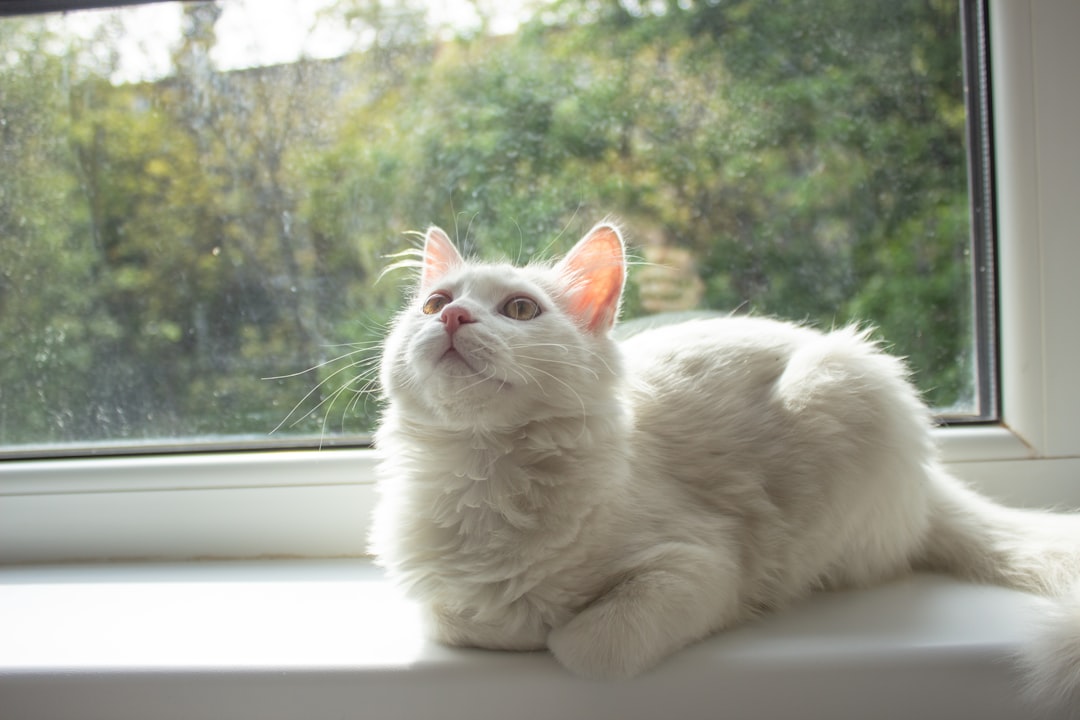If you’ve ever found yourself serenaded by the melodious sounds of your cat snoring, you might be wondering: why do they sound like a little furry chainsaw? Fear not, as we dive into the world of cat snoring. This intriguing phenomenon isn’t just a cute quirk; it can indicate everything from simple relaxation to potential health concerns. So, grab your cat and a comfy spot on the couch as we explore the reasons behind this nightly symphony and know when it’s time for a trip to the vet.
Understanding Cat Snoring: An Overview

Ah, the delightful symphony of cat snoring! If you’ve ever been lulled to sleep by your furry friend’s adorable purring and then startled awake by a deep, rumbling snore, welcome to the club! But, what’s behind that precious sound? Let’s break it down:
- What is Cat Snoring?
Cat snoring occurs when your feline’s airway temporarily collapses due to relaxation during sleep. Their purrs might morph into sounds that could rival a bulldozer! - Why Do Cats Snore?
Several factors contribute to this phenomenon:- Breed Matters: Brachycephalic breeds (like Persians) are notorious snorers.
- Weight: Extra pounds can mean extra snores!
- Nasal Issues: Allergies and infections can create a symphony of snorts and snores.
Realize that while cat snoring often falls within the realm of normal, it can occasionally indicate underlying health concerns. So, don’t be too quick to dismiss it—stay tuned as we navigate through the ins and outs of this furry experience!
Common Reasons Cats Snore

Ah, the rhythmic lullaby of cat snoring! Many cat owners find this sound amusing, while others might worry something’s amiss. Here are the most common culprits behind this furry phenomenon:
- Nasal Congestion: Just like humans, cats can get stuffed up. Allergies, colds, or irritants may cause their passages to block, leading to snoring.
- Obesity: A few extra pounds can cause the airway to narrow, making cat snoring more likely. Think of it as their own version of sleep apnea!
- Sleeping Position: Cats love to curl up in cozy positions. If they’re squished into a ball, the pressure may affect their breathing and result in those adorable snores.
- Age: Older cats often snore more, as their muscle tone diminishes. A bit of age-related wisdom might be involved!
- Breed Characteristics: Flat-faced breeds, like Persians and Burmese, are more prone to cat snoring due to their unique head structure.
In summary, while cat snoring can often be harmless, keeping a vigilant ear might just be the best practice for your furry friend!
Health Conditions Linked to Snoring in Cats

Ah, the delightful sound of cat snoring! It’s both adorable and slightly concerning, especially when it’s more of a chainsaw symphony than a gentle purr. While many cats snore for benign reasons, sometimes it hints at underlying health issues. Here are some culprits to keep an eye out for:
- Obesity: Extra fluff means extra pressure on airways. If your furry friend is more “fluffball” than “lean machine,” their snoring could result from those extra pounds.
- Respiratory Infections: Just like us, cats can catch a cold! If your cat’s snoring comes with sneezing or wheezing, a vet visit might be necessary.
- Allergies: Dust, pollen—pick your poison! Allergies can cause nasal congestion, leading to that dastardly cat snoring.
- Nasal Polyps: These small growths can block airflow, making it tough for your kitty to breathe quietly.
- Feline Asthma: If your kitty is wheezing alongside the snoring, asthma might just be the issue at paw.
Being attentive to your cat’s snoring and associated behaviors can ensure that you’re treating the root cause rather than merely enjoying their nighttime lullabies. Always play it safe—when in doubt, consult your vet!
How to Differentiate Normal Snoring from Problematic Snoring

Ah, the mellifluous hum of cat snoring! It can often resemble a little purring engine working overtime. But how do you know when your furry friend’s symphony is just fine tunes or if it’s time to sound the alarm? Consider the following:
Normal Snoring:
- Intermittent: Occurs occasionally during deep sleep.
- Volume: Soft and gentle (think soothing lullaby).
- Accompanied Behavior: Your cat wakes up refreshed and playful.
Problematic Snoring:
- Consistent: Happens every night, like clockwork.
- Loud & Raspy: Think of a chainsaw in a quiet forest.
- Other Symptoms: Coupled with coughing, wheezing, or lethargy.
Tips to Evaluate:
- Observe Sleeping Patterns: Is it just a fleeting snore or a nightly serenade?
- Check Breathing: Is your cat breathing comfortably between snores?
- Monitor Behavior Post-Sleep: A happy, alert cat is usually not concerning.
In short, while cat snoring can be adorable, it’s essential to be the judge of when that charm turns concerning. Keep an ear out and a watchful eye!
When to Consult a Veterinarian
If your feline friend sounds like a tiny chainsaw while snoozing, don’t fret just yet—cat snoring is often harmless! However, keep an eye (or ear) out for these signs that might mean it’s time for a vet visit:
- Change in Snoring Pattern: If your cat goes from soft purring to full-on roaring, it could indicate a respiratory issue.
- Difficulty Breathing: Watch for wheezing or labored breathing. If your cat seems to be gasping for air, call in the experts!
- Weight Loss or Increased Thirst: Sudden changes in appetite can signal serious health problems, so it’s best not to ignore it.
- Excessive Sneezing or Coughing: When your cat sounds like they’re auditioning for a sneezing contest, it’s time to investigate further.
To make your decision easier, here’s a quick comparison to guide you:
| Sign of Concern | Immediate Vet Visit Required? |
|---|---|
| Change in snoring pattern | Yes |
| Difficulty breathing | Yes |
| Normal sneezing and snoring | No |
| Occasional snoring | No |
Remember, cat snoring might just be a quirky trait, but staying vigilant ensures your furry companion stays healthy!
The Impact of Age on Cat Snoring
Ah, the golden years of our feline friends! As cats age, their bodies change, and yes, so does their cat snoring. Let’s break it down:
- Natural Changes: Older cats tend to snore more due to relaxed muscles and weaker tissue structures around their throat. This harmless snoring can feel a bit like a purring engine running smoothly.
- Weight Gain: With age, cats may become less active, which can lead to weight gain. Extra fluffiness can contribute to louder cat snoring. Think of it as their personal jet engine going into overdrive.
- Health Issues: While not the rule, certain conditions like respiratory infections or dental problems can arise in older cats, potentially leading to worse snoring.
| Age Group | Snoring Frequency | Snoring Cause |
|---|---|---|
| Young Cats | Rare | Normal breathing patterns |
| Middle-Aged Cats | Occasional | Relaxed muscles |
| Senior Cats | Frequent | Weight gain, health issues |
In summary, while an increase in cat snoring may just reflect your cat’s newfound wisdom, it’s always wise to monitor any changes closely. After all, you want to ensure those snores are just cute and not concerning!
Tips for Reducing Snoring in Cats
So, your feline friend sounds like a purring chainsaw at night, and you’re contemplating whether to invest in earplugs or find a remedy? Fret not! Here are some humorously effective tips to reduce cat snoring and restore peaceful slumber for both of you:
- Elevate Their Sleeping Area: Cats love to curl up in cozy spots. Try placing their bed in a quieter, elevated location. Who knows, the altitude might just clear those airways!
- Maintain a Healthy Weight: Obesity can contribute to cat snoring. Help your kitty shed some pounds with interactive toys and portion control. Less weight means less noise!
- Hydration Matters: Ensure your cat drinks enough water. Proper hydration can help keep their respiratory system clear.
- Regular Vet Check-ups: Never underestimate the power of a regular health check. It’s the best way to catch any underlying issues that might contribute to those nightly serenades.
- Create a Calm Environment: Loud noises and startling smells can disrupt your cat’s sleep cycle. Keep their space serene and peaceful.
With a little effort, you can calm the cat snoring symphony and enjoy restful nights ahead!
Potential Treatments for Snoring Cats
If you’ve found yourself tossing and turning at night listening to the all-too-familiar chorus of cat snoring, you’re not alone. Thankfully, there are potential treatments to consider! Here’s a crafty little breakdown:
Home Remedies:
- Weight Management: Help your kitty shed those extra pounds! A healthy diet can reduce fat around the neck, alleviating pressure that causes cat snoring.
- Sleep Position Adjustment: Encourage your furry friend to snuggle in different positions. Sometimes a simple shift can change their snoring tune!
Veterinary Options:
- Regular Check-Ups: Stay on top of your cat’s health! Regular vet visits can prevent any underlying issues that might exacerbate their snoring.
- Medication: In rare cases, your vet may prescribe medications to treat respiratory issues contributing to the snoring.
Environmental Enhancements:
- Air Quality Improvements: Consider using a humidifier or air purifier. Cleaner air might reduce respiratory irritation and minimize that obnoxious cat snoring!
Remember, while cat snoring can be adorable, it’s wise to monitor any changes. If it gets louder or more frequent, a trip to the vet might just be in order!
Myths and Misconceptions About Cat Snoring
Ah, cat snoring—while it often evokes a chuckle or a heartwarming sight, it also comes with a smorgasbord of myths. Let’s tackle some of the most common misconceptions about cat snoring so that you can distinguish truth from kitty tall tales!
Common Myths:
- “Cats snore only when they’re ill.”
Nope! Just like humans, cats snore sometimes when they’re in deep slumber. It could be just part of their charm. - “All snoring cats have breathing issues.”
While breathing problems can cause cat snoring, many cats are simply loud dreamers, indulging in their night-time adventures. - “Cat snoring is a sign of old age.”
While older cats may snore more often, younger cats can be just as noisy, especially those with flat faces. Buzzing dreams know no age limit!
In conclusion, cat snoring can mix truth and myth into a cozy ball of fur. It’s essential to stay informed, so the next time your furry companion snoozes loudly, you can laugh rather than worry!
Myths and Misconceptions About Cat Snoring
Ah, cat snoring—that adorable soundtrack of your feline’s nap time. But wait! Before you fall under its charming spell, let’s clear the air about some common myths surrounding this phenomenon.
- Myth 1: All Cats Snore Just Like Humans
Nope! While some cats may sound like a tiny chainsaw, not every kitty gets into the snoring game. - Myth 2: Cat Snoring is Always a Bad Sign
In most cases, the gentle rumble of cat snoring is harmless. Unless it’s accompanied by other concerning symptoms, there’s usually no reason to panick. - Myth 3: Only Fat Cats Snore
Surprise! Slim felines can snore too. It often depends on their breed and anatomy—Brachycephalic types, like Persians, are prime snoozers. - Myth 4: Snoring Only Happens During Sleep
Think again! Some cats even fumble their way through a little snore while lounging awake. Talk about multitasking!
Remember, while cat snoring is often just part of the package, always stay vigilant. If you spot any unusual signs, don’t shy away from a quick vet visit!
Frequently Asked Questions
Is it normal for my cat to snore?
Absolutely! Just like humans, some cats have a tendency to snore, especially when they are in deep sleep. Short-nosed breeds like Persians and Himalayans are particularly prone to this symphonic nighttime performance. However, if your feline friend begins snoring loudly after a lifetime of peaceful slumber, it might be worth checking in with the vet for some peace of mind.
What causes my cat to snore?
Snoring in cats can be caused by a plethora of reasons! From the position they sleep in (some cats find the most bizarre positions that could make anyone question their sanity), to potential allergies causing nasal congestion, or being a fluffy ball of fur with a narrow respiratory tract. If your cat snores like a tiny chainsaw but seems otherwise healthy, you might just be the lucky owner of the neighborhood’s best snorer!
When should I be concerned about my cat’s snoring?
While occasional snoring is a normal part of cat life, be on the lookout for any alarming snores that are accompanied by other strange behaviors. If your cat is having trouble breathing, appears lethargic, or has a sudden change in appetite or behavior, it’s time to grab the phone and consult your vet! After all, even the most adorable of snorers should be checked out if their nocturnal antics take a turn for the worse.
Can I do anything to help reduce my cat’s snoring?
Sometimes snoring is just a quirky cat thing that you have to accept – like their insatiable urge to sit on your keyboard. However, you can help by monitoring their weight (because a little less fluff can mean less snoring) and ensuring they have a cozy environment free from dust or allergens. If you feel particularly adventurous, consider changing their sleeping position for a trial run – though convincing a cat to change their habits might require a PhD in feline manipulation!



